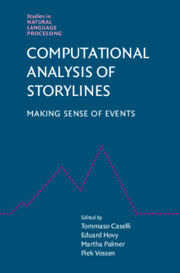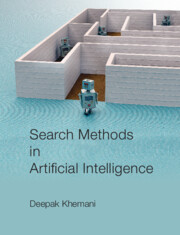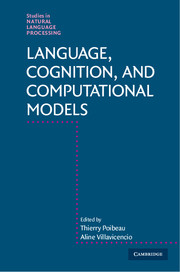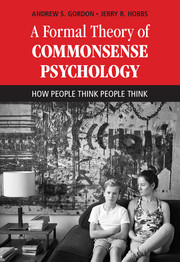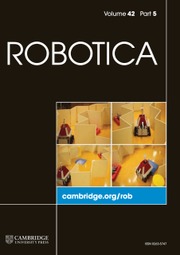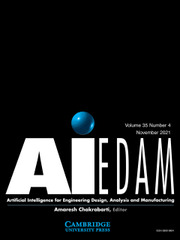Computational Analysis of Storylines
Event structures are central in Linguistics and Artificial Intelligence research: people can easily refer to changes in the world, identify their participants, distinguish relevant information, and have expectations of what can happen next. Part of this process is based on mechanisms similar to narratives, which are at the heart of information sharing. But it remains difficult to automatically detect events or automatically construct stories from such event representations. This book explores how to handle today's massive news streams and provides multidimensional, multimodal, and distributed approaches, like automated deep learning, to capture events and narrative structures involved in a 'story'. This overview of the current state-of-the-art on event extraction, temporal and casual relations, and storyline extraction aims to establish a new multidisciplinary research community with a common terminology and research agenda. Graduate students and researchers in natural language processing, computational linguistics, and media studies will benefit from this book.
- Presents an overview of state-of-the-art natural language processing methods that address storyline extraction
- Includes an overview of state-of-the-art event extraction and representation, allowing readers to become familiar with theories and computational models of events
- Provides coverage accessible to graduate students and researchers in human language technologies, natural language processing, computational linguistics, artificial intelligence, media studies, and journalism
- Proposes to end the fragmentation of this lively research area, and establish a new mulitdisciplinary research community with a common terminology and research agenda
- Includes contributions from top industry and academic experts in the field
- 33 figures and 22 tables supplement the text
Reviews & endorsements
'Events are a key aspect of language meaning and the storylines underlying discourse. This book presents an accessible and comprehensive examination of events in language - from the philosophical and linguistic foundations to state of the art computational techniques for identifying, representing and reasoning about events and storylines.' James Allen, University of Rochester and Institute of Human and Machine Cognition
'There is no technology with more potential to revolutionise digital media than the computational processing of stories. This comprehensive guide covers the field of event and storyline analysis from first principles to the state of the art. Anyone doing technical work in news innovation or future media should read this.' David Caswell, Executive Product Manager, BBC News Labs
'Finally, a compendium of key, state-of-the-art ideas in narrative understanding, allowing researchers to see the big picture. Caselli, Hovy, Palmer, and Vossen have not only assembled key papers, but also created a beautiful conceptual overview of the field – a must-read for any researcher interested in narratives and storylines.' Peter Clark, Allen Institute for AI
Product details
November 2021Adobe eBook Reader
9781108848138
0 pages
This ISBN is for an eBook version which is distributed on our behalf by a third party.
Table of Contents
- Introduction and Overview Tommaso Caselli, Martha Palmer, Ed Hovy, and Piek Vossen
- Part I. Foundational Components of Storylines:
- 1. The Role of Event-Based Representations and Reasoning in Language James Pustejovsky
- 2. The Rich Event Ontology – Ontological Hub for Event Representations Claire Bonial, Susan W. Brown, Martha Palmer, and Ghazaleh Kazeminejad
- 3. Decomposing Events and Storylines William Croft, Pavlìna Kalm and Michael Regan
- 4. Extracting and Aligning Timelines Mark Finalyson, Andres Cremisini, and Mustafa Ocal
- 5. Event Causality Paramita Mirza
- 6. A Narratology-Based Framework for Storyline Extraction Piek Vossen, Tommaso Caselli, and Roxane Segers
- Part II. Connecting the Dots:
- 7. The Richer Event Description Corpus for Event-Event Relations Tim O'Gorman, Kristin Wright-Bettner, and Martha Palmer
- 8. Low-Resource Event Extraction via Share-and-Transfer and Remaining Challenges Heng Ji and Clare Voss
- 9. Reading Certainty across Sources Ben Miller
- 10. Narrative Homogeneity and Heterogeneity in Document Categories Dan Simonson and Tony Davis
- 11. Exploring Machine-Learning Techniques for Linking Event Templates Jakub Piskorski, Fredi Šarić, Vanni Zavarella, and Martin Atkinson
- 12. Semantic Storytelling – from Experiments and Prototypes to a Technical Solution Georg Rehm, Karolina Zaczynska, Peter Bourgonje, Malte Ostendorff, Julián Moreno-Schneider, Maria Berger, Jens Rauenbusch, André Schmidt, Mikka Wild, Joachim Böttger, Joachim Quantz, Jan Thomsen, and Rolf Fricke.

